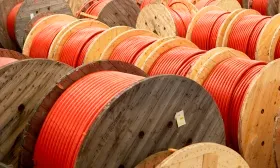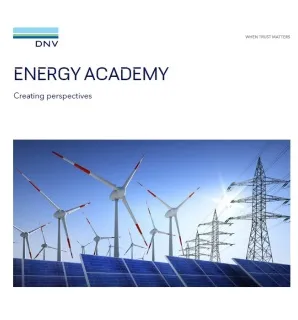Ageing, Quality Assurance, Testing, Diagnostics and Failures of MV and (E)HV Power Cables training course
This two-day (or three-days when online) training course focuses on degradation mechanisms, tests during production, lifetime and post-installation, failures and failure investigation of MV and (E)HV power cables and their accessories - all within the context of, and linking to, quality assurance.
What degradation mechanisms or ageing mechanisms affect cables and its accessories? What is the rate of progression of these degradation processes? Do they all result in failure? What methods are available for diagnosing these degradation mechanisms? Are these analysis and testing techniques only available in a laboratory or also in the field? Which ones are potentially destructive and which ones are absolutely safe? And how effective are these techniques? Can these techniques only be applied offline or can they also be applied online? And what is the relationship of all this to safeguarding quality and reliability? Plenty of questions, but not every supplier of analysis and testing techniques will give you independent advice. That’s precisely what we do in this course.
This in-depth practical training course is part of a series of courses on power cables, consisting of a general course, Power cables in general and several in-depth multiple day courses, providing more detailed information on the following topics:
- Ampacity and engineering aspects of power cables
- Asset management, maintenance and remaining life of power cables
Subjects:
- Ageing
- Quality assurance
- Lab testing for production
- Field testing for commissioning
- Lab testing for service aged cables
- Field testing for service aged cables
- Failure investigations
In some cases, a visit to the KEMA labs may be part of the training program (not applicable for online training).
Target Audience:
Anyone involved (or to be involved) with power cables in the course of their daily work. It is recommended that the participants hold at least a Bachelor of Engineering degree or have a certain foreknowledge of power cables. The Power cables in general course is a recommended preparation, but not a requirement.
Next to underground power cable courses, DNV also offers courses in the field of HVDC and submarine power cables:
For more information about this training course please refer to the leaflet.
On request, Energy Academy can also provide an in-company training (content, location and duration of the course can be adapted to the client’s wishes). Please contact us for more information.
What degradation mechanisms or ageing mechanisms affect cables and its accessories? What is the rate of progression of these degradation processes? Do they all result in failure? What methods are available for diagnosing these degradation mechanisms? Are these analysis and testing techniques only available in a laboratory or also in the field? Which ones are potentially destructive and which ones are absolutely safe? And how effective are these techniques? Can these techniques only be applied offline or can they also be applied online? And what is the relationship of all this to safeguarding quality and reliability? Plenty of questions, but not every supplier of analysis and testing techniques will give you independent advice. That’s precisely what we do in this course.
This in-depth practical training course is part of a series of courses on power cables, consisting of a general course, Power cables in general and several in-depth multiple day courses, providing more detailed information on the following topics:
- Ampacity and engineering aspects of power cables
- Asset management, maintenance and remaining life of power cables
Subjects:
- Ageing
- Quality assurance
- Lab testing for production
- Field testing for commissioning
- Lab testing for service aged cables
- Field testing for service aged cables
- Failure investigations
In some cases, a visit to the KEMA labs may be part of the training program (not applicable for online training).
Target Audience:
Anyone involved (or to be involved) with power cables in the course of their daily work. It is recommended that the participants hold at least a Bachelor of Engineering degree or have a certain foreknowledge of power cables. The Power cables in general course is a recommended preparation, but not a requirement.
Next to underground power cable courses, DNV also offers courses in the field of HVDC and submarine power cables:
For more information about this training course please refer to the leaflet.
On request, Energy Academy can also provide an in-company training (content, location and duration of the course can be adapted to the client’s wishes). Please contact us for more information.


